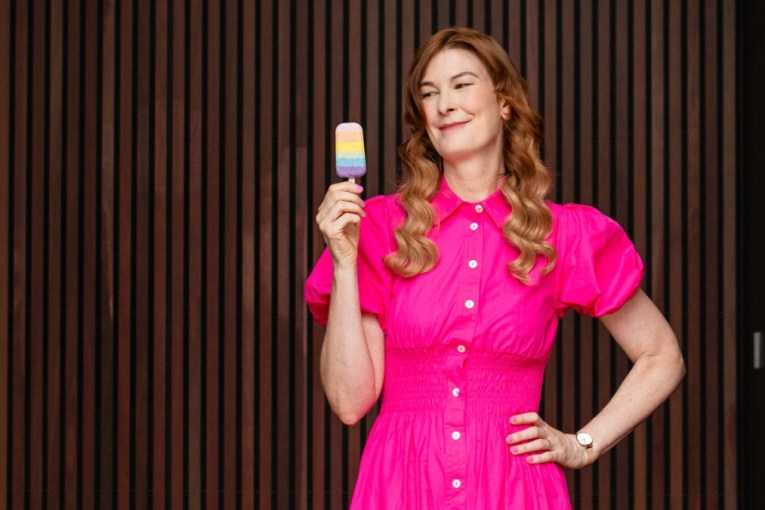The very worst things you can do to your teeth

Getty
Australia’s oral health has suffered because we continue to unknowingly inflict damage on our teeth.
We all know the dangers of soft drinks, smoking and a failure to brush and floss, but a dental expert told The New Daily there are other “hidden” risks to our teeth.
Recent surveys conducted by the Australian Dental Association have uncovered many of these dangers.
• Exercise and the great weight loss myth
• How soft drink damages your body in just 60 minutes
• This is what ‘electrolytes’ really are
• The ‘most dangerous’ drug on the market
Adults are harming themselves – and their children – without realising, Australian Dental Association oral health committee chairman Dr Peter Alldritt said.
Cavities in children have worsened. Oral cancers have increased. Gum disease remains the nation’s fifth-most prevalent health problem.
Here’s how you can prevent tooth decay and gum disease.
Sports drinks

Electrolyte sports drinks seem healthy, but attack teeth with acid. Photo: Shutterstock
Sugary electrolyte sports drinks trigger “acid attacks”, something much of the nation does not know, Dr Alldritt said.
A recent survey conducted by the Australian Dental Association found half of active Aussies were unaware of the potential risks these drinks posed to teeth. One-third even admitted to giving these drinks to their children at least once a week.
“People don’t realise that they are unhealthy for your teeth because of the way they are perceived as a healthy drink,” he said.
“The acidity softens your tooth enamel, causing it to lose minerals like calcium, so your tooth becomes demineralised and softer. The enamel gets thinner and your teeth get yellower and more sensitive.”
Sugars hidden in ‘health’ foods
Supposedly healthy products like fat-free yoghurt and muesli bars are in fact very high in sugar, which is harmful to teeth, Dr Alldritt said.
“They are delicious, they really are. I’ve eaten them and I think, ‘Wow, that’s amazing’. But have a look at the sugar content.
“The main cause of tooth decay is frequent consumption of sugar on a regular basis.”
Diet soft drinks

Even diet sodas, which seem healthy, can damage teeth. Photo: Shutterstock
While almost everyone knows full-sugar soft drinks are bad for teeth, most probably don’t know the diet varieties are just as bad, Dr Alldritt said.
“People think sugar is the problem, therefore they go with diet drinks. But that’s a misconception because even drinks that are free of sugar are highly acidic.”
These sugar-free drinks have a pH level of between two and three. As a comparison, one is the highest level of acidity.
Bottled water
It has become “trendy” to drink water from bottles instead of taps, increasing the risk of tooth decay, Dr Alldritt said.
Most bottled waters contain no fluoride, an additive that works with saliva to remineralise teeth and neutralise bad bacteria.
“It’s beneficial to everybody, not just children who are growing their new teeth, but adults as well because the fluoride actually makes tooth enamel harder, stronger and more resistant to acid attacks.”
‘Detox’ liquids

Drink one of these every morning and you could be in serious trouble. Photo: Shutterstock
Daily drinking of lemon juice, apple cider vinegar and other acidic liquids are often touted as natural weight loss and detox remedies.
If drunk regularly, they are harmful to teeth because they are “highly acidic”, Dr Alldritt said.
A recent patient of Dr Alldritt’s had drunk lemon juice daily for a number of years and had lost almost all of her tooth enamel as a result.
“Her teeth looked terrible. They were extremely sensitive. Just breathing air would make them hurt.”
Swishing
For all of the risky liquids, the habit of swilling them around the mouth increases the potential harms, Dr Alldritt said.
“It gets in contact with more surfaces and it’s also in your mouth for longer,” he said.
“The extended contact time of the acid against the tooth is associated with more tooth wear.”
Chewing ice

Leave chewing ice to the silly animals. Photo: Getty
Crunching on ice cubes is also risky.
“The ice is so hard, it can actually chip little pieces of your tooth enamel off, particularly off the back molars where you’re chewing it,” Dr Alldritt said.
“It’s not a good idea. It’s too hard for your teeth.”
Toothy bottle openers
Ripping open packaging and popping open bottles with your mouth is a big no-no, Dr Alldritt said.
“Teeth are not supposed to be used as tools. If you can’t get that plastic packet open, well, get a pair of scissors,” he said.
“If you’ve already had a corner built up on a corner, a filling placed or a restoration done, you are going to put pressure on that restoration by loading it by using the teeth as a tool.”
Dodgy mouthguards

How do you think former Essendon player James Hird kept his smile intact? Photo: Getty
In a recent survey, the Australian Dental Association found that 75 per cent of people who wore a mouthguard had bought it over the counter.
A professionally made guard moulded to your mouth is superior, Dr Alldritt said.
“If you have a professionally fitted mouth guard, it will be comfortable, you’ll actually wear it and it will also provide superior protection for your teeth.”








